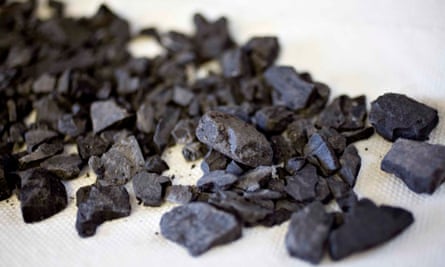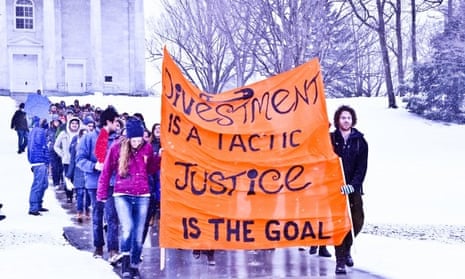The fossil fuel protest leadership is well aware of the flaws in divestment as an investment strategy, but marches on hoping to gain public awareness and political currency.
At best, the complete closure of every listed fossil fuel business on the planet would impact less than 70% of the world’s combustible carbon reserves, most of which are held by state owned companies in largely single commodity countries. At worst, even nominal success would result in greater ownership of listed fossil fuel businesses with people and institutions that have less interest in protecting the environment, further gridlocking the ability to make changes within these businesses.
Claims of historic victories against apartheid, tobacco, sweatshop labour and the like are grander in the memories of past protesters than they are in real impact. The Occupy movement is the latest example of a fizzled message. Their rightful claim of social exploitation by a group of disproportionately wealthy bankers with a distinctly cavalier attitude towards social and economic equality went viral. Yet it lasted a few short months before being cast aside by a public that initially cared but soon forgot. The cavalier attitude outlives the protest. The leadership had no plan. No next step.
The divestment protestors however and particularly the students that are creating renewed furore at Oxford University, do have a next step. Unlike their brothers and sisters that participated in the Occupy movement, these protesters have a real opportunity to make a lasting impression on the world. But before the Divestment campaign goes the way of the Occupy movement, the protestors should graduate directly to the ultimate objective of their efforts.
The goal is not the collapse of fossil fuel businesses. Those companies will fade away as demand for their products diminish. Surprising to many, this is already happening. According to Carbon Tracker, falling demand in the US since 2008 has caused at least 26 coal companies to go into bankruptcy.
During this period, the value of coal companies fell an average of 29% while equity markets rose more than 30%. This has come about through a combination of regulation, efficiency and alternatives, not protest and certainly not divestment.

The same fate will come to oil and gas companies. Reuters reports that since 2005, US population increased by 20 million people and output by over 10%, yet the consumption of petroleum products in the US declined by more than 2 million barrels per day. In fact, the International Energy Agency recently reduced its global oil demand forecast for 2015 for the fourth time in 12 months. Additionally, OPEC has again reduced their 3-year forecasts of demand to a 14-year low. Even with the collapse in oil prices, there has been precious little increase in demand over the past six months. The writing is on the wall for these businesses.
The way to really turn up the heat is to re-focus on emissions mitigation. After all, the ultimate objective of the protest against fossil fuels is the mitigation of carbon in the atmosphere rather than the closure of carbon suppliers. Granted, emissions mitigation is a much more complex issue. It requires policy intervention together with economic transition. However, addressing demand through policy (regulation) and transition (efficiencies and alternatives) will have a far greater impact on curtailing carbon and other greenhouse gas emissions. Equally, it will be distinctly more meaningful to fossil fuel producers than changing their share ownership or sending them a message of outrage.
And what a time it is to graduate to emissions mitigation. There just happens to be a major global discussion on emissions mitigation scheduled this year in Paris. These students are the vanguard of the future generations most at risk. Through their actions, they have proven a desire to be part of the solution. They have formed a body and made a statement based on what they believe is right. They should be part of the process that makes things right. Collectively, their voice should be given a seat at the table for the COP. Their influence in Paris would be more impactful and more lasting than trying to convince a prepared and steadfast university endowment community to alter its ways.
But there is little time left to protest. Collaboration requires commitment, planning and action. The leadership of the campaign is well versed in COP politics. They should be aiding the efforts of students from across the world’s campuses to become a global collective. Rebellion may be a rite of student passage, but this is too great an issue and too great an opportunity to dally with passages of youth.
The world needs to make crucial and definitive statements about the future. The protesters have far more vested interest in a cleaner, brighter future than the politicians that have struggled to make any headway for dozens of years. Perhaps the younger generation can make a difference. They have certainly earned the right to participate.
The leadership hub is funded by Xyntéo. All content is editorially independent except for pieces labelled ‘brought to you by’. Find out more here.
Join the community of sustainability professionals and experts. Become a GSB member to get more stories like this direct to your inbox.
